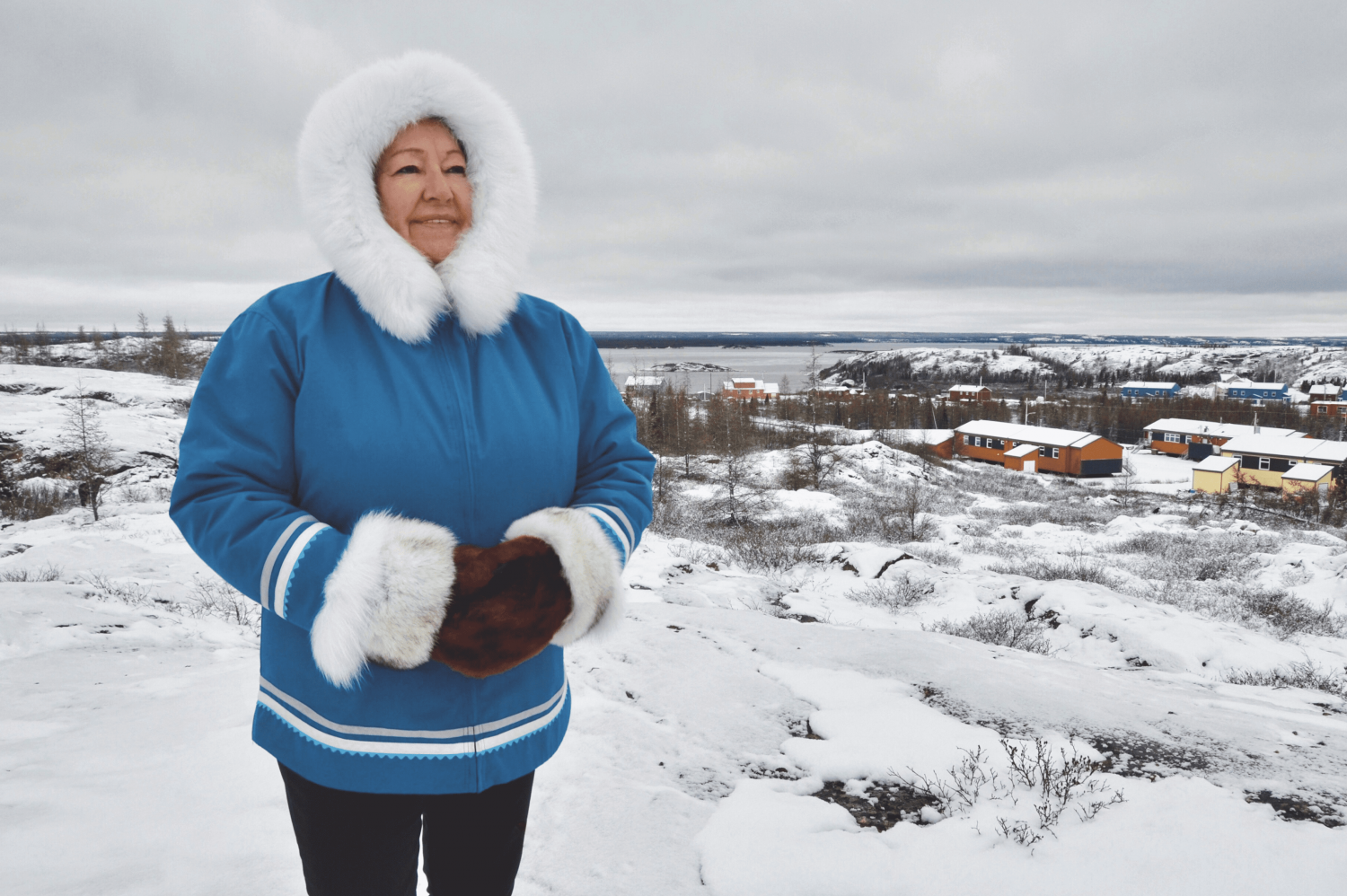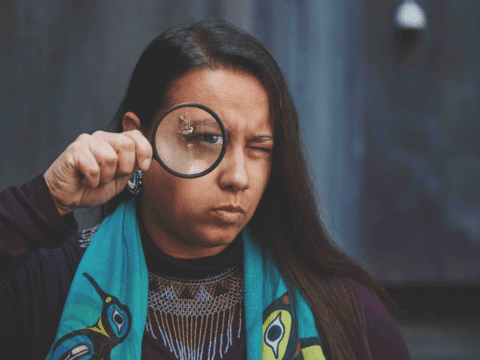Canada’s Arctic is heating up nearly three times faster than the rest of the world. It’s warmer than it’s been in at least 10,000 years. Permafrost is turning to mush, roads and runways are buckling, hunters on snowmobiles are falling through ice that looks solid but is rotten to its core. For those who live in southern Canada, it may be hard to grasp how all-encompassing this catastrophe is for the people who have called the Arctic home for centuries. But for the Inuit, it’s an apocalypse. Their language, culture, spirituality, food, livelihood and transportation are tied to the land that’s changing underfoot.
Inuk environmental and human rights advocate Sheila Watt-Cloutier wrote about all this in her bestselling 2015 memoir, The Right to Be Cold. The book isn’t just a lament for a culture in crisis; it’s a wake-up call to the rest of the world. Because the truth is that the catastrophic changes occurring in the Arctic are coming for the rest of us, too.
What can we learn from a people who have weathered the squelching of their spiritual practices, cancers caused by industrial pollutants that accumulate disproportionately in Arctic food chains, and a melting way of life?
Despite — or perhaps because of — their traumas, the Inuit are a remarkably resilient people, says Watt-Cloutier. Through all of this upheaval, they haven’t lost their spiritual connection to the land. Watt-Cloutier describes how Inuit children learn life skills by hunting with their elders: “When you’re out there waiting for the snow to fall and the wind to die and the animals to surface, you’re learning patience. You’re learning about yourself. How to be bold under pressure, how to withstand stressful situations, how not to be impulsive, how to develop sound judgment and wisdom. Those character skills make you a better provider and natural conservationist, to be sure, but they’re also the character skills required to survive in the modern world.”
Watt-Cloutier believes our ecological crisis is also a spiritual one. “It’s that disconnect with nature, with the land, and the preciousness of it and the love for it that has been lost,” she says.
Watt-Cloutier spent a decade travelling the world, publicizing the plight of the Arctic and working to connect human rights with climate change. In 2006, she stepped down from her work chairing the Inuit Circumpolar Council — an organization representing Inuit people in Canada, Alaska, Greenland and Russia — and took some time to care for her own emotional, physical and spiritual health.
The writings of American author and spiritual leader Marianne Williamson helped Watt-Cloutier make sense of her own grief. She also found solace in water and open skies around her house in Iqaluit. (She has since moved to Montreal.) “I had a view that was so magical, so surreal, that it grounded me as I meditated in prayer,” she says. “I say to it: ‘I protect you as you protect me.’”
When Watt-Cloutier was growing up, Inuit shamanic spirituality was taboo, thanks to colonial Christianity. Now she sees another generation returning to traditional practices like hunting, fishing, beading, drumming and dancing. Watt-Cloutier’s daughter practises traditional throat singing. “She really honours the elders who have taught her,” Watt-Cloutier says. “I think there’s this ripple effect happening. As we protect our own culture, our livelihoods, our language and our way of life, we can guide the world to see through that lens, that soulful, spiritual, cultural connection to our land and to the planet.”
This story first appeared in Broadview‘s January/February 2020 issue.















